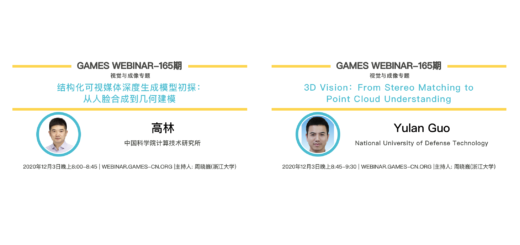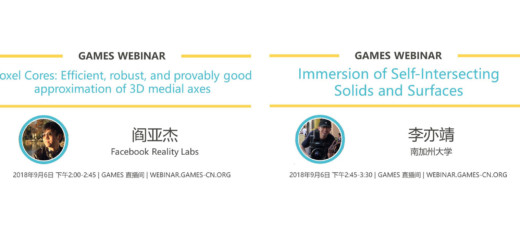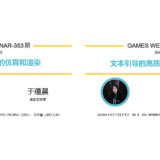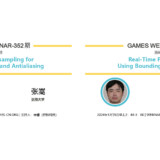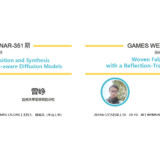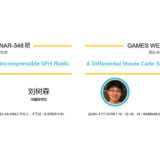GAMES Webinar 2021 – 209期(浙大-斯坦福前沿技术交流之计算成像专题 (II)) | Alex Bergman, Manu Gopakumar, Suyeon Choi (Stanford University)
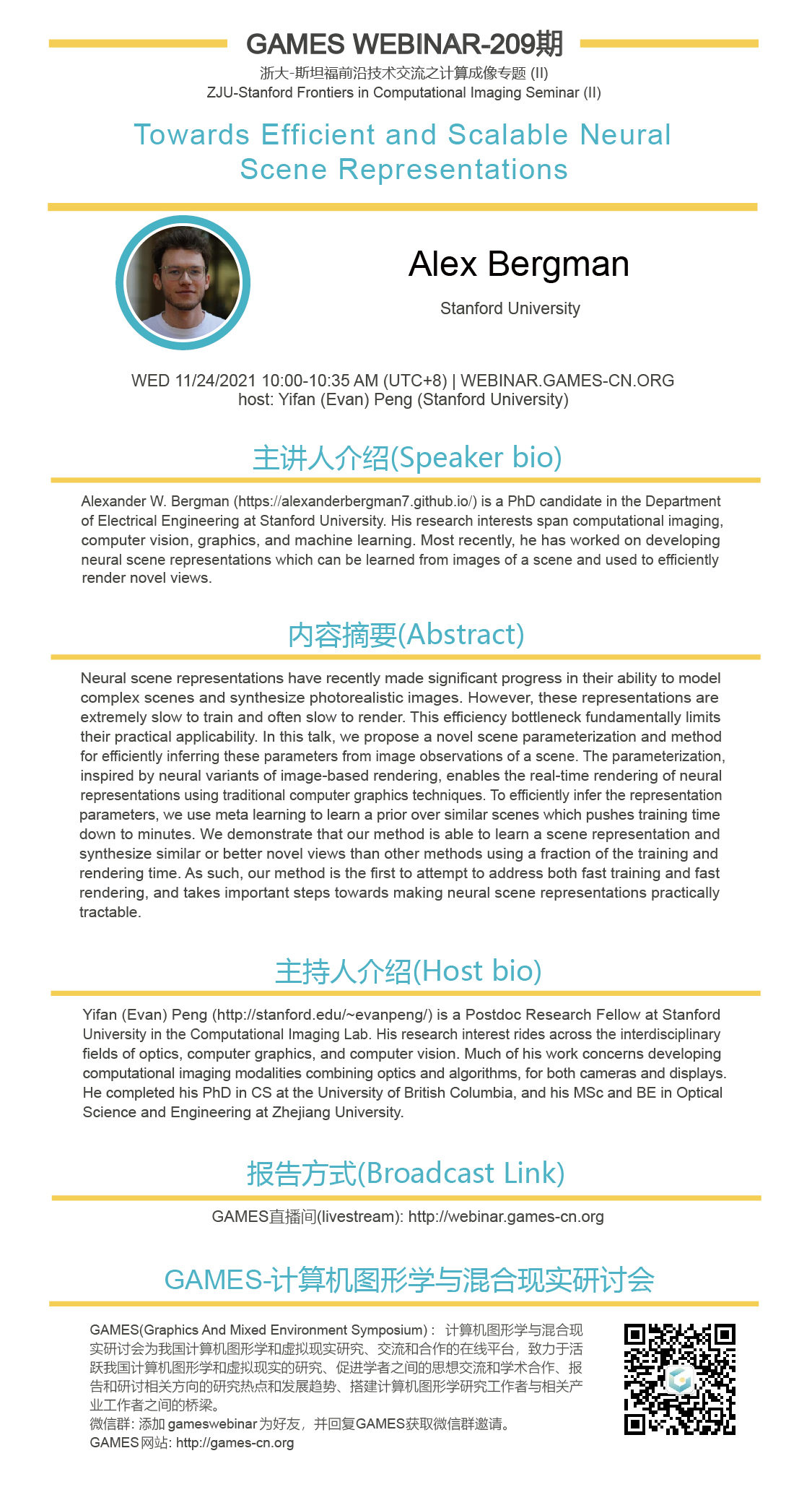
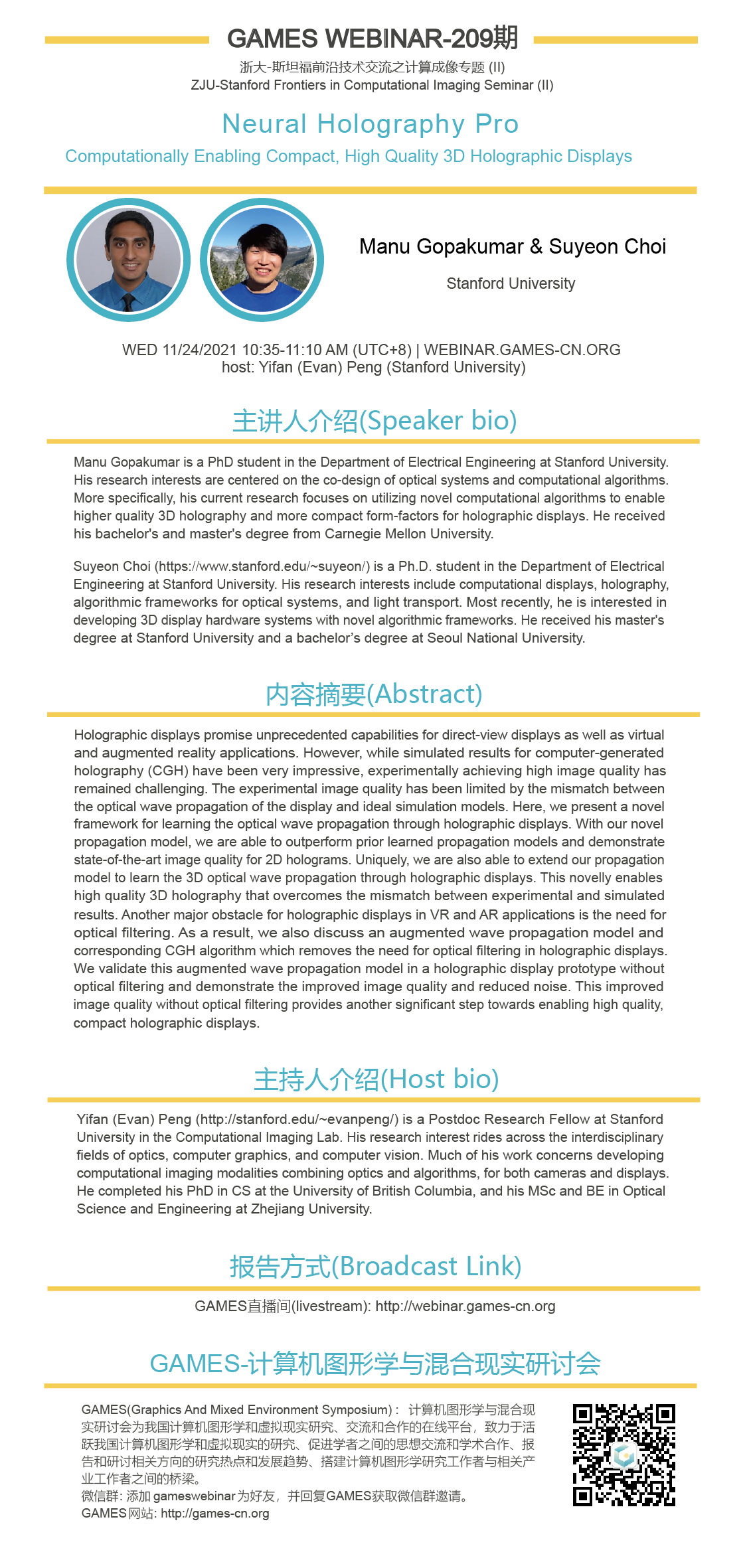
【GAMES Webinar 2021-209期】
(浙大-斯坦福前沿技术交流之计算成像专题 (II), ZJU-Stanford Frontiers in Computational Imaging Seminar (II))
报告嘉宾1(Speaker):Alex Bergman (Stanford University)
报告时间(Time):2021年11月24号星期三上午 10:00-10:35(北京时间)(WED 11/24/2021 10:00-10:35 AM (UTC+8))
报告题目(Title):Towards Efficient and Scalable Neural Scene Representations
报告方式(Broadcast Link):http://webinar.games-cn.org
报告摘要(Abstract):
Neural scene representations have recently made significant progress in their ability to model complex scenes and synthesize photorealistic images. However, these representations are extremely slow to train and often slow to render. This efficiency bottleneck fundamentally limits their practical applicability. In this talk, we propose a novel scene parameterization and method for efficiently inferring these parameters from image observations of a scene. The parameterization, inspired by neural variants of image-based rendering, enables the real-time rendering of neural representations using traditional computer graphics techniques. To efficiently infer the representation parameters, we use meta learning to learn a prior over similar scenes which pushes training time down to minutes. We demonstrate that our method is able to learn a scene representation and synthesize similar or better novel views than other methods using a fraction of the training and rendering time. As such, our method is the first to attempt to address both fast training and fast rendering, and takes important steps towards making neural scene representations practically tractable.
讲者简介(Speaker bio):
Alexander W. Bergman (https://alexanderbergman7.github.io/) is a PhD candidate in the Department of Electrical Engineering at Stanford University. His research interests span computational imaging, computer vision, graphics, and machine learning. Most recently, he has worked on developing neural scene representations which can be learned from images of a scene and used to efficiently render novel views.
报告嘉宾2(Speaker):Manu Gopakumar & Suyeon Choi (Stanford University)
报告时间(Time):2021年11月24号星期三上午 10:35-11:10(北京时间)(WED 11/24/2021 10:35-11:10 AM (UTC+8))
报告题目(Title):Neural Holography Pro Computationally Enabling Compact, High Quality 3D Holographic Displays
报告方式(Broadcast Link):http://webinar.games-cn.org
报告摘要(Abstract):
Holographic displays promise unprecedented capabilities for direct-view displays as well as virtual and augmented reality applications. However, while simulated results for computer-generated holography (CGH) have been very impressive, experimentally achieving high image quality has remained challenging. The experimental image quality has been limited by the mismatch between the optical wave propagation of the display and ideal simulation models. Here, we present a novel framework for learning the optical wave propagation through holographic displays. With our novel propagation model, we are able to outperform prior learned propagation models and demonstrate state-of-the-art image quality for 2D holograms. Uniquely, we are also able to extend our propagation model to learn the 3D optical wave propagation through holographic displays. This novelly enables high quality 3D holography that overcomes the mismatch between experimental and simulated results. Another major obstacle for holographic displays in VR and AR applications is the need for optical filtering. As a result, we also discuss an augmented wave propagation model and corresponding CGH algorithm which removes the need for optical filtering in holographic displays. We validate this augmented wave propagation model in a holographic display prototype without optical filtering and demonstrate the improved image quality and reduced noise. This improved image quality without optical filtering provides another significant step towards enabling high quality, compact holographic displays.
讲者简介(Speaker bio):
Manu Gopakumar is a PhD student in the Department of Electrical Engineering at Stanford University. His research interests are centered on the co-design of optical systems and computational algorithms. More specifically, his current research focuses on utilizing novel computational algorithms to enable higher quality 3D holography and more compact form-factors for holographic displays. He received his bachelor’s and master’s degree from Carnegie Mellon University.
Suyeon Choi (https://www.stanford.edu/~suyeon/) is a Ph.D. student in the Department of Electrical Engineering at Stanford University. His research interests include computational displays, holography, algorithmic frameworks for optical systems, and light transport. Most recently, he is interested in developing 3D display hardware systems with novel algorithmic frameworks. He received his master’s degree at Stanford University and a bachelor’s degree at Seoul National University.
主持人简介(Host bio):
Yifan (Evan) Peng (http://stanford.edu/~evanpeng/) is a Postdoc Research Fellow at Stanford University in the Computational Imaging Lab. His research interest rides across the interdisciplinary fields of optics, computer graphics, and computer vision. Much of his work concerns developing computational imaging modalities combining optics and algorithms, for both cameras and displays. He completed his PhD in CS at the University of British Columbia, and his MSc and BE in Optical Science and Engineering at Zhejiang University.
GAMES主页的“使用教程”中有 “如何观看GAMES Webinar直播?”及“如何加入GAMES微信群?”的信息;
GAMES主页的“资源分享”有往届的直播讲座的视频及PPT等。
观看直播的链接(link to the livestream):http://webinar.games-cn.org
